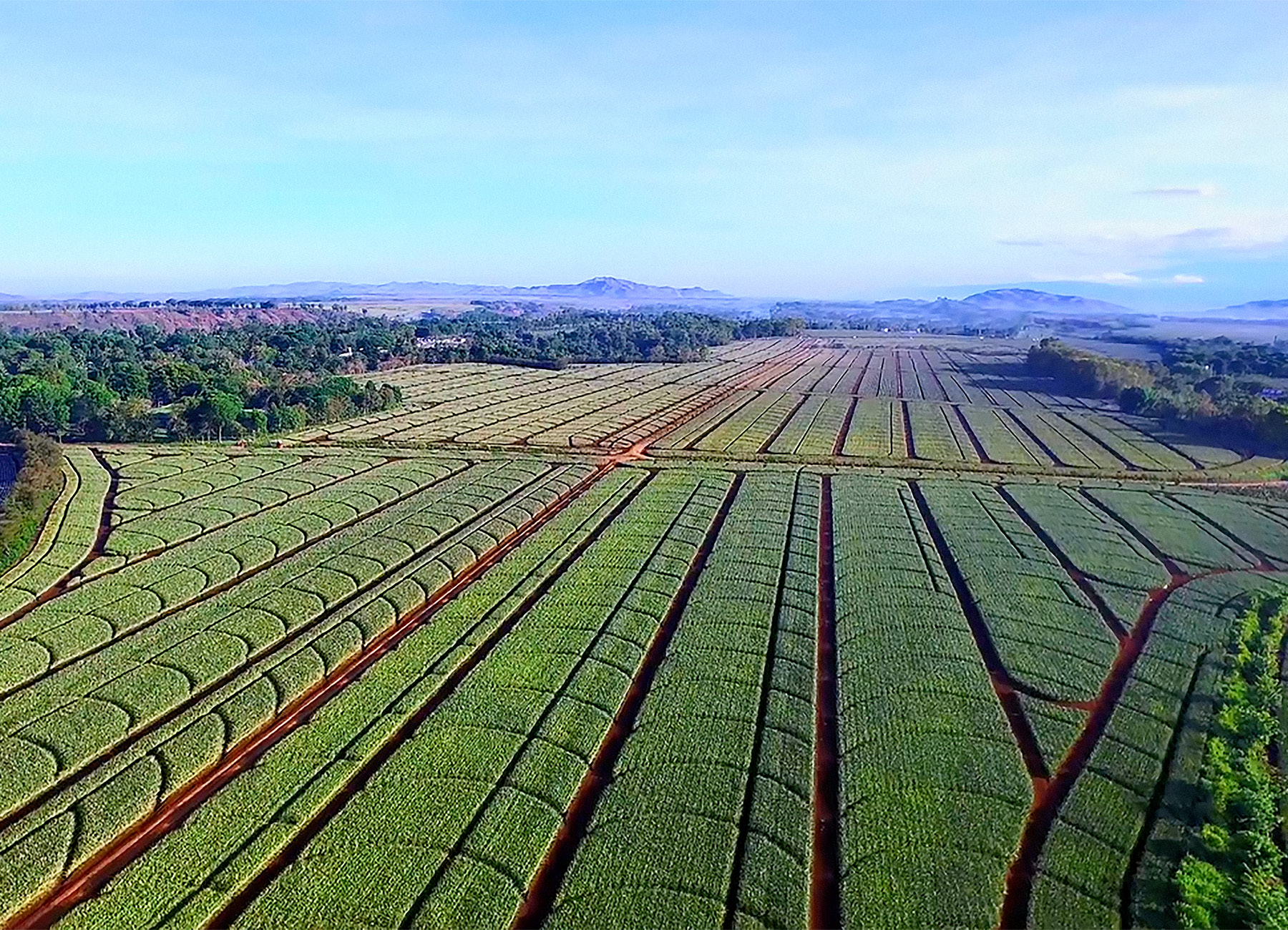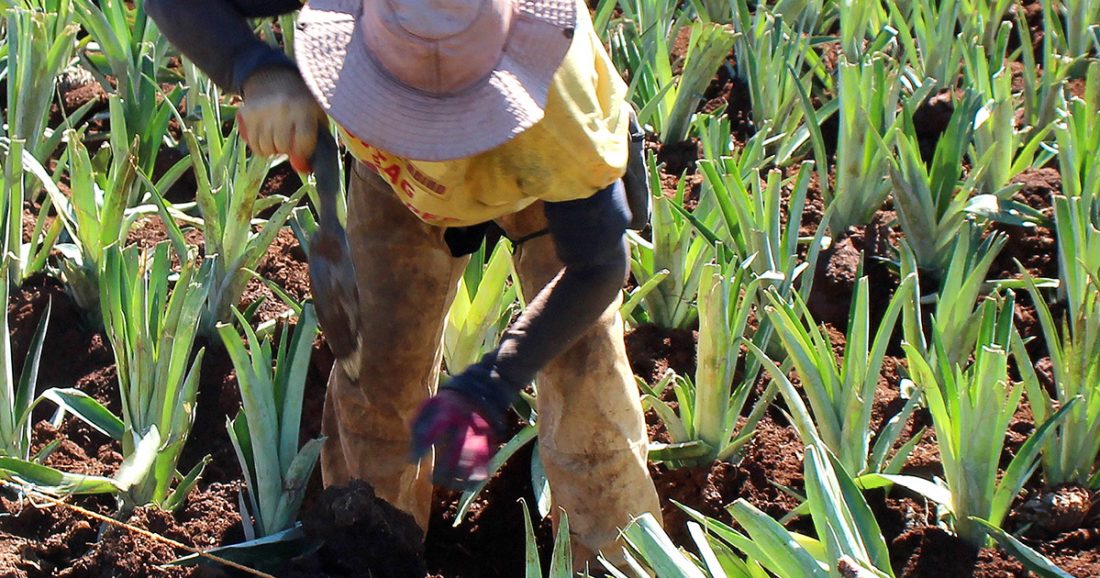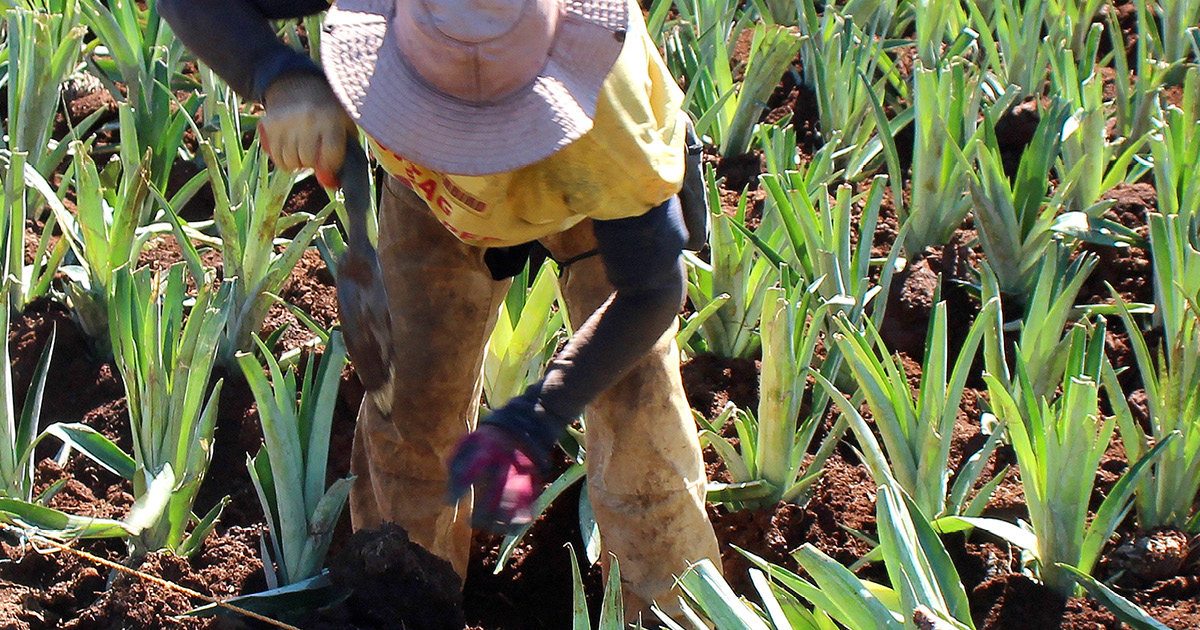Through its operating units in the Philippines and United States, Del Monte Pacific Limited (DMPL) has been a great contributor to the sustainable food network. Having foreseen the concerns of the food industry as early as 1886, it has been delivering healthy, high-quality products ever since, with its vision to nourish people, communities and the planet every day.
When Parag Sachdeva ponders the factors that have helped to build DMPL into the company it is today, his thoughts lead him to an area he once regarded with skepticism – the company’s decision to run its own plantations instead of just buying, promoting and selling products.
“If somebody would’ve asked 20 years back, ‘Hey, you have such an asset-heavy structure, you manage your own plantations, what’s the point?’ I probably would’ve agreed with them. That sort of capital-intensive structure wouldn’t have looked like paying dividends in the long run,” he reflects.
But now, as a CFO of one of the world’s leading producers, distributors and marketers of packaged vegetables, fruits, sauces and juices, his perspective has changed. Sachdeva counts his blessings that the company made that call all those years ago.
“In hindsight, I think it’s been a big boon for us because we’re controlling the end-to-end quality of our raw produce either directly or through partnering with our growers,” he says.

“We have an edge over our competition when it comes to food security and sustainability.”
“In the coming years, with food security and food scarcity, which are going to be equally important topics, I think we’re nicely placed because of our backward integration in the Philippines and long-term grower relationships and collaboration in the United States.
“We have so many uses for the raw produce, which helps us to maintain a negative carbon footprint in our pineapple operations, particularly in the Philippines. For example, we’ve invested in a juicing line, frozen capability and we have waste-to-energy solutions that allow us to have minimal waste and clean water discharge.
“There is very little waste because of these initiatives, and that allows me to say with confidence that we have an edge over our competition when it comes to food security and sustainability.”
Coming to Fruition
Sachdeva wasn’t with DMPL during the initial purchase of pineapple plantations, nor was he on board when the company acquired its United States operations in 2014. But in the past five years, he has certainly helped maximize these opportunities, returning improved profitability achieved in the 2023 fiscal year, with an EBITDA of US$337 million Group-wide.
It has been operating for almost 140 years in the United States and 98 years in the Philippines.
“We’ve been transforming the landscape, whereby we have right sized our network, divested or exited certain businesses, and we’ve also invested in innovation and more contemporary products that consumers are looking for,” he explains.
DMPL has seen unprecedented inflationary headwinds, an increase in interest rates and category declines in the past two-to-three quarters.
“In a high inflationary environment, we need to think out of the box to drive productivity and lower waste across the supply chain. We also need to reduce fixed costs across the infrastructure and network,” he says.
“We need to drive revenue and volume growth through offerings and packaging formats that deliver value and affordability.”

Advertisement
In addition to productivity and efficiency, the Group also aims to digitize its supply and demand planning capabilities, Sachdeva explains.
“This is critical for optimizing inventory and working capital. With rising interest rates and increased volatility, optimizing working capital will be a big priority that will also drive improvement in operating performance,” he predicts.
“We’ve partnered with a company called Anaplan to achieve that and we’re now focused on the back end, driving more and more automation around supply planning, procurement and processes so that we can have a more integrated approach. This will then enable us to control our working capital more effectively.
“We also keep fostering long-term co-pack partnerships to drive growth, optimize supply reliability and costs. Our partnership for sourcing peach products from Venus Growers in Greece and our joint venture with Vinamilk have been great examples.”
He adds that DMPL is also working hard to reduce leverage and improve its capital structure in light of the high interest rate environment.
A Changing Landscape
Sachdeva has made it a priority to tackle the challenge of global warming and climate change on the food-growing industry.
“Part of what we’re investing in is planning and predictive capability on the plantation,” he points out.
“It stems from climate change and really requires predictive analysis around the growth of plants before harvesting. This is so you can appreciate what the gaps and related deficiencies are, and the impact on raw produce. Then you can understand what interventions are needed, intervene at the right stage and not eat into your productivity.”

“From a product offering perspective, with fruits, vegetables, broths and juices, we are very much focused on healthy trends.”
DMPL has also found a sweet spot in the food and beverage market, tapping into the societal trend of healthy living.
“I think what separates us from others in the market is our consistent approach of focusing on selling healthy products to consumers,” Sachdeva says.
“I’m proud to say that whatever we sell today fulfills our vision of enriching lives and nourishing people every day. From a product offering perspective, with fruits, vegetables, broths and juices, we are very much focused on healthy trends and sell the same through our iconic brands globally.”




